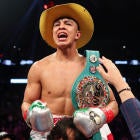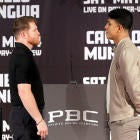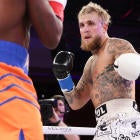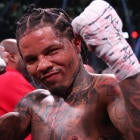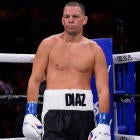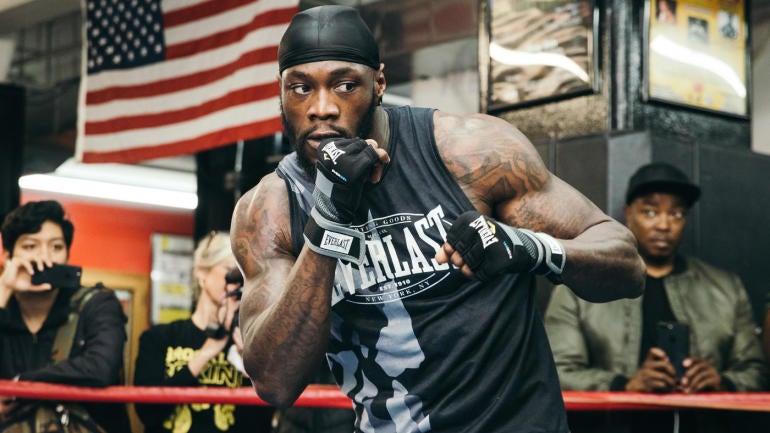
When unbeaten WBC heavyweight champion Deontay Wilder faces mandatory challenger Dominic Breazeale on Saturday, it will be the culmination of a two-year beef that began with harsh words and a melee inside an Alabama hotel lobby in 2017.
The trash talk between the two teams has been heavy entering this weekend's clash at the Barclays Center in Brooklyn, New York (Showtime, 9 p.m. ET), with Wilder having endured criticism during the initial press conference for advising Breazeale to make funeral arrangements ahead of the fight.
Respect box? Subscribe to my podcast -- State of Combat with Brian Campbell -- where we take an in-depth look at the world of boxing each week.
Wilder (40-0-1, 39 KOs) took his morbid threats to a whole new level during Tuesday's media workout at Gleason's Gym when he echoed the movie character Ivan Drago's famous line from "Rocky IV" by saying, "if he dies, he dies" about Breazeale (20-1, 18 KOs) and went on to further explain what he hopes to accomplish.
Deontay Wilder on wanting to kill an opponent: “This is the only sport where you can kill a man and get paid for it at the same time...so why not use my right to do so?” #WilderBreazeale pic.twitter.com/Li5bcSdHEn
— Ryan Songalia (@ryansongalia) May 15, 2019
"Hey, Dominic Breazeale asked for this," Wilder told reporters. "I didn't go seek him, he sought me so if [death] comes, it comes. This is a brutal sport, this is not a gentleman's sport. I keep saying this is not a gentleman's sport. We don't ask to hit each other in the face but we does anyway.
"You can ask any doctor around the world and he'll tell you the head isn't supposed to be hit. Anybody can go and in this particular time we have bad blood against each other. This is the only sport where you can kill a man and get paid for it at the same time. It's legal, so why not use my right to do so?
"His life is on the line for this fight and I do mean his life. I'm still trying to get me a body on my record."
Wilder, of course, wouldn't be the first fighter to bring the threat of death into the mix while hyping a fight. Mike Tyson, for example, once said before facing Donovan "Razor" Ruddock in 1991 that "if he doesn't die, it doesn't count." This also wouldn't be the first time Wilder, 33, has drawn criticism for communicating his goal of getting a kill on his record.
The comments have extended a relevant debate about whether there are lines of trash talk within boxing that shouldn't be crossed given the life-threatening danger of the sport.
From the 33-year-old Breazeale's perspective, Wilder went too far and will pay for it on Saturday.
"I'm super upset," Breazeale told CBS Sports' "State of Combat" podcast on Tuesday. "You never want to hear an individual -- and I don't care what sport it is but especially in the sport of boxing -- who has the ability to put someone else in a bad state of mind or hurt them physically [talk like that]. I don't think he understands what he's saying. He's just not all there, if that makes sense.
"Both he and I have knocked out individuals with shots where I am like, 'Oh God, I hope he is going to be OK from this.' But that's just my ring gentleman ship and having a care for life. Because of it, he is going to have to pay [on Saturday]. He was going to pay anyways and I was going to have sportsmanship behind it but now when I put this beating on him and I hurt him and punish him, I'm not going to shake this man's hand. I'm not going to tell people I feel sorry for him if he's hurt. It is what it is and he has comeuppance coming his way."
The hotel skirmish between heavyweights, which occurred after Wilder's 2017 win over Gerald Washington in Birmingham, began, according to Breazeale, when he was verbally accosted in the crowd by Wilder's brother for being so vocal in giving instructions to his friend Washington.
After the fight, word got back to Wilder about the words exchanged and he approached Breazeale, who had his wife and kids in tow, and berated him with harsh words demanding an apology. Breazeale then accused Wilder's brother of punching him in the back of the head from behind to trigger a melee that was broken up.
"There is no way you can get behind a heavyweight champ who wants to put harm on another individual or take another man's life or put them in a coma," Breazeale said. "That just doesn't make any sense and that's not the barbaric state of mind that any champion should be in."













